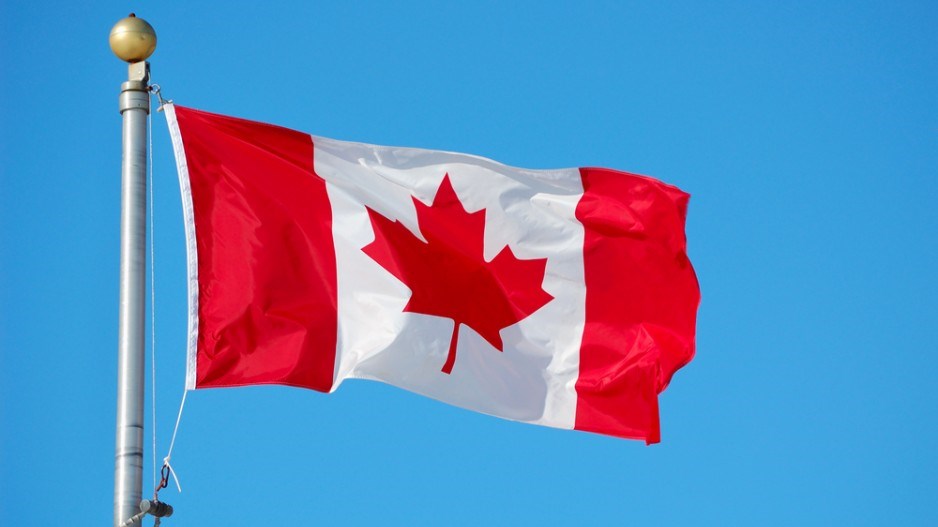The year that has just started will mark the 40th anniversary of the first referendum on Quebec sovereignty and the 25th anniversary of the last one. As the new decade begins, the alienation expressed by Albertans on social media is garnering more attention than the electoral success of the Bloc Québécois in 2019.
Research Co. recently asked Canadians about their views on four issues: separation, joining the United States, their premier and their prime minister. The findings show that while a push for sovereignty has gained traction in Alberta and Quebec, the two provinces express very different feelings when it comes to their provincial and federal heads of government.
Across the country, one in five Canadians (25%) believe that their province would be better off as its own country, while two thirds (65%) reject this notion.
It is not surprising to see two provinces lead the way on expressing a desire for sovereignty. Two-in-five residents of both Quebec and Alberta (40%) feel this way, while the numbers are decidedly lower for Canadians who live in Ontario (22%), British Columbia (19%), Atlantic Canada (11%) and Saskatchewan and Manitoba (also 11%).
The allure of independence has increased in Alberta by 10 points since July 2019 and in Quebec by six points since October 2018. Still, there is a discrepancy between the two provinces. In Quebec, there is little acrimony towards the premier and the prime minister. In Alberta, the level of animosity towards both overtakes sovereigntist feelings by a large margin.
When Canadians are asked if their province would be better off with a different premier in charge, there are only two provinces where fewer than half of residents agree: Quebec (44%) and British Columbia (42%).
In Ontario, three in five residents (60%) believe things would be better with someone other than Doug Ford in charge of the provincial government. In Alberta, a similarly high proportion of residents (56%) believe things would improve if Jason Kenney was supplanted as premier.
Half of Canadians (50%) think their province would be better off with a different Prime Minister in Ottawa. As expected, Albertans are at the top of this list (65%), followed by majorities of residents of Saskatchewan and Manitoba (59%), British Columbia (53%) and Ontario (51%).
An eye-catching difference between Quebec and Alberta is directly related to Ottawa. While two in five residents of each province assume that they would be better off as independent nations, only 38% of Quebecers think the province would fare batter under a Prime Minister not named Justin Trudeau. This represents a 27-point gap between Quebec and Alberta.
When Canadians are asked if their province would be better off joining the United States, the numbers shift drastically. At least one in five Albertans (22%) and Quebecers (20%) would see no problem with this scenario, along with 18% of Ontarians, 12% of British Columbians, 9% of Atlantic Canadians and 8% of Saskatchewanians and Manitobans.
These numbers could seem worrisome, especially in the context of recent public votes in other jurisdictions. Still, a look at what is really bugging residents of specific provinces shows that strength of feeling about dreams of independence or becoming the 51st state pales in comparison with how residents view the people in charge of their current destiny.
While the parties that advocated openly for the United Kingdom’s exit from the European Union never garnered much traction in first-past-the-post elections to the House of Commons, the “Brexit” referendum was successful as a “Yes” or “No” proposition. It is unclear if Quebec will ultimately seek a new vote on sovereignty, as the complaints of Albertans continue to command media coverage.
We must remember that the founders of the Bloc Québécois were former Progressive Conservative and Liberal politicians who were disenchanted with the behaviour of the federal government headed by Brian Mulroney. It is doubtful that current Members of Parliament from the Conservative Party will suddenly decide that a separatist option is in their best interest. This course of action might leave them more alienated than now.
Leading a genuine challenge to a province’s place in Canada requires nuance that goes beyond mere whining, as well as figures of the intellectual gravitas of former Quebec Premier Jacques Parizeau. Alberta’s supposed separatist movement is currently more interested in selling hats and t-shirts, and, so far, has manifested an understanding of the world that is more reminiscent of Inspector Jacques Clouseau.
The numbers may continue to climb every time Albertans are asked about a future that entails not dealing with Ottawa. However, the current premier will find it difficult to be a voice of unity, when the number of residents who are upset with his performance is higher than those who flirt with an uncertain fortune as a landlocked nation.
Mario Canseco is president of Research Co.
Results are based on an online study conducted December 18–20, 2019, among 1,000 adults in Canada. The data has been statistically weighted according to Canadian census figures for age, gender and region in Canada. The margin of error, which measures sample variability, is plus or minus 3.1 percentage points, 19 times out of 20.




